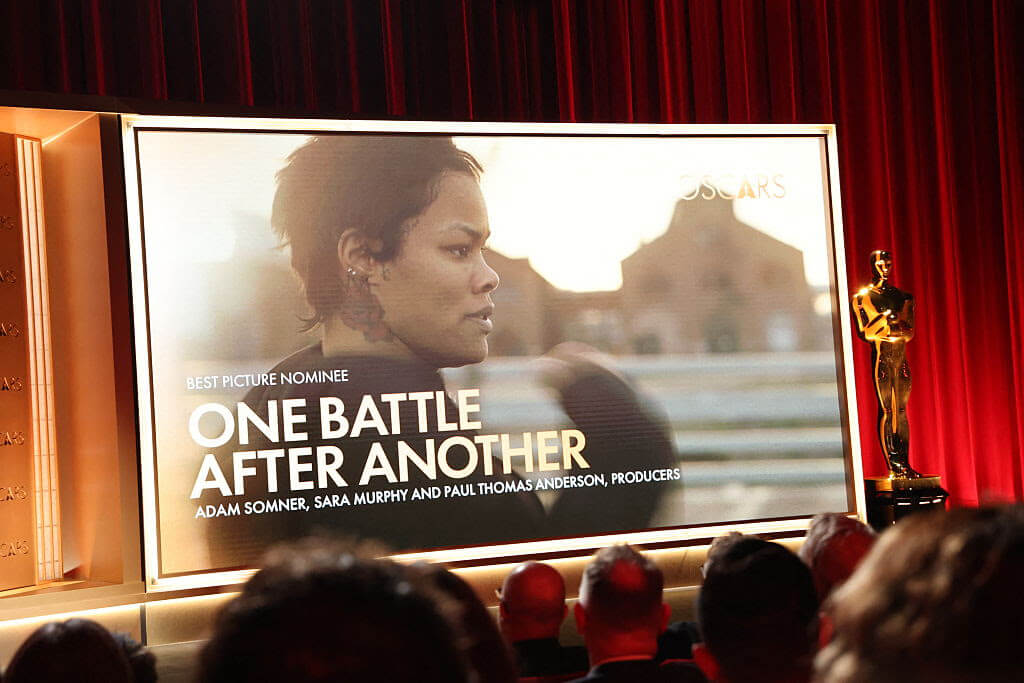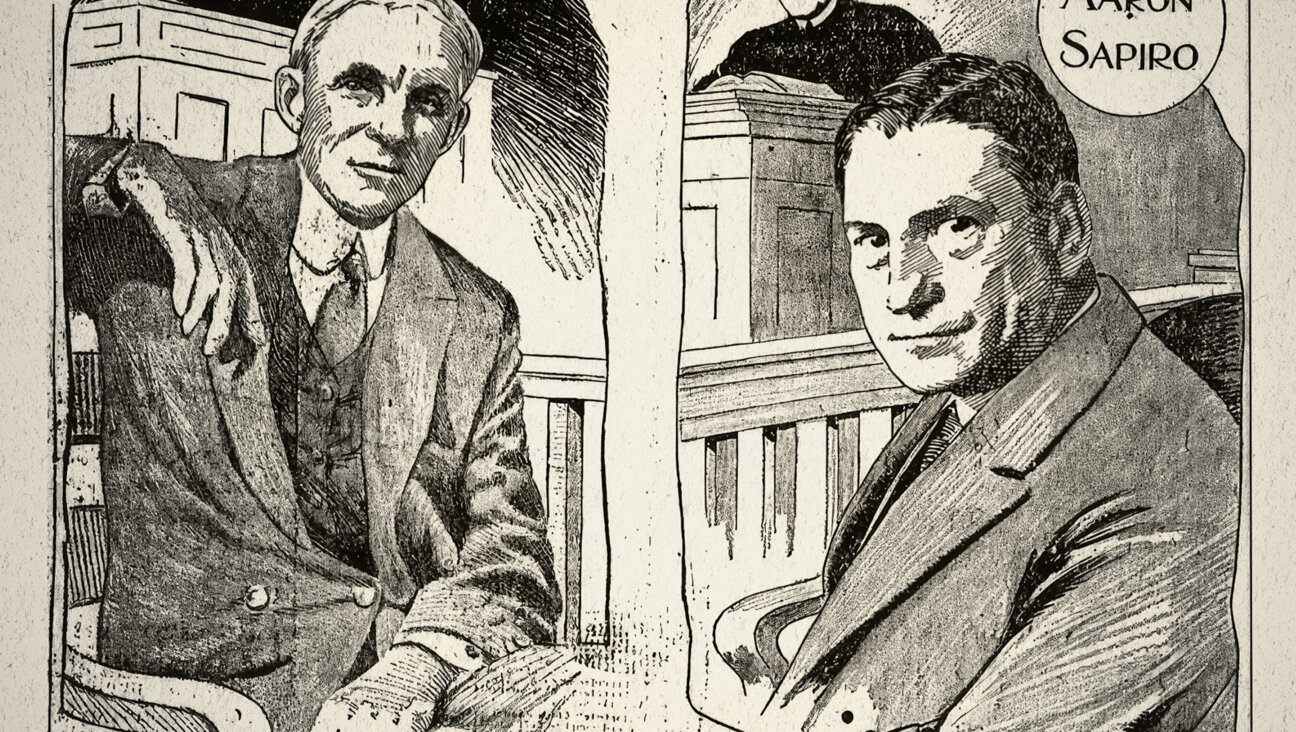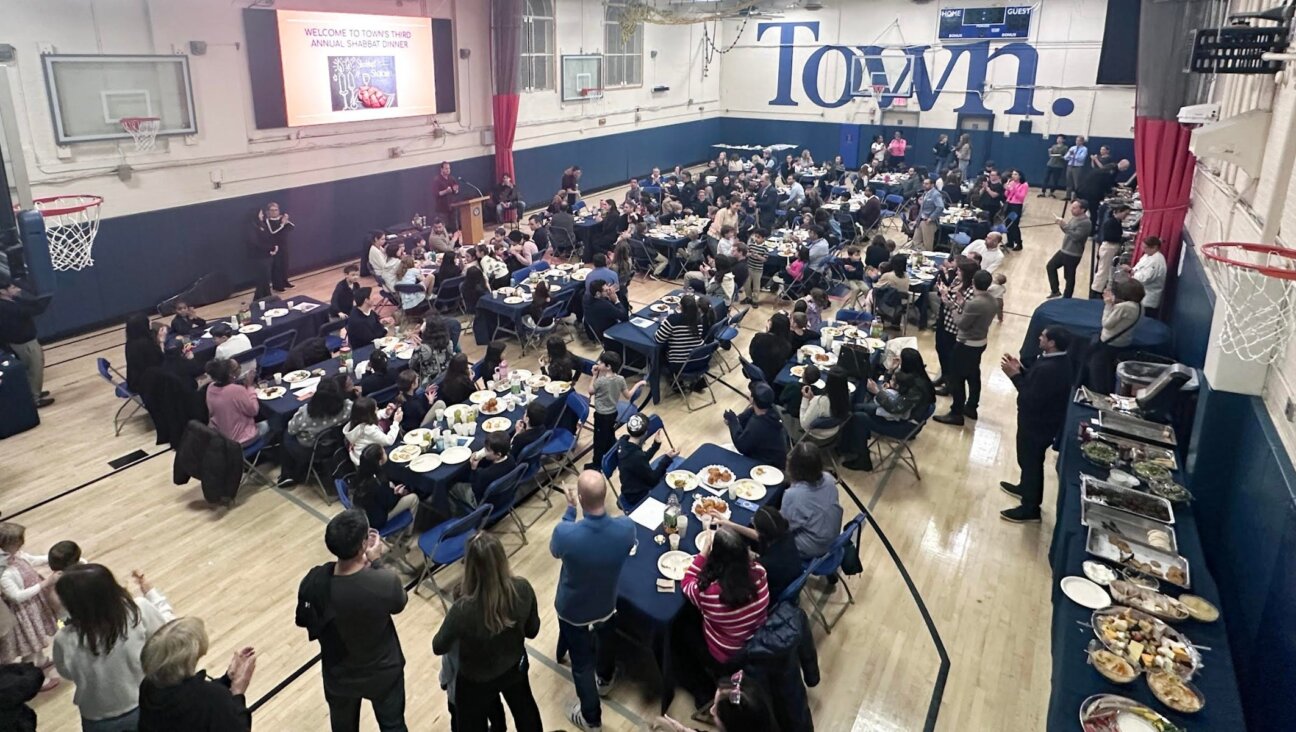6 Artists You Didn’t Know Used Yiddish, From Elvis to Public Enemy

Image by Getty Images / Lior Zaltzman
It’s astounding how much Yiddish has infiltrated today’s popular culture. From classic musicals like “Fiddler on the Roof” to sitcoms like Seinfeld, some words and phrases of Ashkenazi Jews’ native tongue have become Americanized, naturalized, and sometimes clichéd.
So, when Public Enemy released its latest album, “Man Plans, God Laughs,” emblazoned with , we decided to investigate. Here are six Yiddish idioms that classic and modern musicians across major genres have invoked their work.
1) Man Plans, God Laughs
Transliteration: Der mentsh trakht un got lakht
Famed hip-hop group Public Enemy released its 15th LP, Man Plans, God Laughs, last week. Although rapper and producer Chuck D has said that Kendrick Lamar and Run the Jewels inspired this record, we know that the title is actually a Yiddish proverb. Whether intentional or not, the connection seems fitting: Public Enemy still represents the pinnacle of political rap and Yiddish sayings often comment on such issues as well.
2) Mazel Tov
Transliteration: Mazal tov
This obvious, congratulatory phrase has already breached most forms of mass cultural consumption. But this 2009 Grammy award-winning track from The Black Eyed Peas integrated an exclamatory “Mazel tov!” so flawlessly into the middle of “I Gotta Feeling” that the song has since become a mainstay at all bar and bat mitzvahs and Jewish weddings until the end of time. Plus, it’s like The Peas even knew about Pesach’s four cups of wine, as the Yiddish exclamation comes right after the line about “Fill up my cup.”
Extra Listening: Jay-Z & Kanye West also used recently the phrase in “New Day” from 2011’s Watch The Throne, rapping, “So at thirteen we’ll have our first drink together / Black bar mitzvahs, mazel tov, mogul talk.”
3) Walls Have Ears
Transliteration: Vent hobn oyern
Many have researched and analyzed Elvis Presley’s relationship with Judaism. It’s been rumored that his mother was part Jewish and part Native America, and the King was often spotted sporting a Chai or Star of David necklace. In 1962, Elvis recorded ‘The Walls Have Ears” for his film Girls! Girls! Girls! The title refers to a Yiddish phrase that warns someone is always listening.
Extra Listening: A Sonic Youth bootleg, unapproved by the band, was released in 1986 by this name.
4) Still Water Runs Deep
Transliteration: Shtil vaser grobt tif
The origin of this phrase is debated (some say Italian/Latin, other say Shakespearian.), the Yiddish version still offers a cautious admonition of the roiling emotions that can hide beneath a calm exterior. Detroit soul group The Four Tops made this idiom famous in 1970, with its Hitsville USA record Still Waters Run Deep and chart topping single “Still Water (Love).”
5) Either All Or Nothing
Transliteration: Oder gor oder gornisht
Although quite a common turn of phrase in pop culture today, one of the most groundbreaking uses came from Arthur Altman and Jack Lawrence’s 1939 composition “All or Nothing At All.” But it wasn’t until 1943 until consummate crooner Frank Sinatra made the song a smash, when Columbia Records re-released his vocal version. Since then, other famous musicians including Chet Baker, John Coltrane, Diana Krall, and Sarah Vaughan have all covered “All or Nothing At All.”
6) Jack of All Trades, Master of None
Transliteration: Fil meloches, vainik broches
Diana Krall actually channeled another Yiddish phrase on her 1997 album Love Scenes. She chastises a potential love interest with this saying in each chorus, revisiting the shame of his lack of excellence brings. While some have argued that this figure of speech was originally two separate phrases, the Yiddish version usually links them together.
Extra Listening: Dream pop duo Beach House shortened the idiom to just “Master of None” and on their eponymous debut album in 2006.














